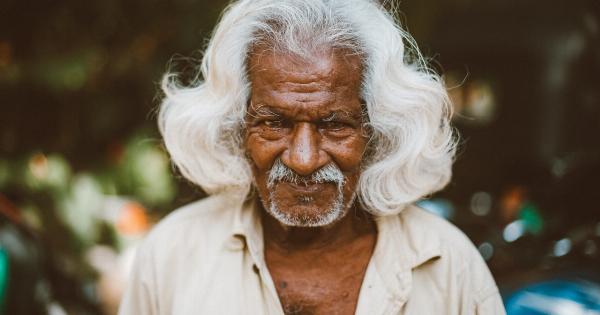As the summer months approach and temperatures rise, it is important to be aware of the hidden risks that hot summer nights can pose, especially for the elderly population.
While enjoying the warm weather and longer daylight hours, seniors may face various health challenges that are exacerbated by the heat, leading to potential complications. Understanding these risks and taking appropriate measures can help ensure the well-being of older individuals during hot summer nights.
1. Dehydration and Heat Stroke
One of the primary concerns for seniors during hot summer nights is dehydration and heat stroke. As individuals age, their bodies become less efficient at regulating temperature and retaining water.
This can result in quicker dehydration, which increases the risk of heat exhaustion and potentially life-threatening heat stroke. The combination of high temperatures and humidity can accelerate the onset of heat-related illnesses in the elderly.
2. Cardiovascular Complications
Elevated temperatures can put additional strain on the cardiovascular system, potentially leading to increased heart rate, higher blood pressure, and other cardiovascular complications.
For older individuals with pre-existing heart conditions, the impact of hot summer nights can be even more pronounced. It is crucial for seniors with heart conditions to closely monitor their symptoms and seek medical attention if they experience any alarming signs.
3. Respiratory Issues
Hot and humid weather can make breathing more difficult for seniors with respiratory conditions, such as asthma or chronic obstructive pulmonary disease (COPD).
The heat can trigger airway inflammation and worsen symptoms, making it essential for those with such conditions to stay hydrated, avoid excessive physical exertion, and seek medical guidance if needed.
4. Skin Problems
Extended periods of time spent outdoors during hot summer nights can lead to various skin problems in the elderly, including sunburn, heat rash, and heat-related skin infections.
Senior skin tends to be thinner and more sensitive, making it more susceptible to sun damage and other heat-related issues. Adequate sun protection, including wearing appropriate clothing and applying sunscreen, is vital for maintaining skin health during the summer months.
5. Medication Interactions
Many elderly individuals take multiple medications to manage chronic conditions. Hot weather can sometimes interfere with the effectiveness of certain medications or lead to additional side effects.
It is important for seniors to consult their healthcare providers to understand any potential interactions between their medications and the heat. Adjustments to dosages or schedules may be necessary to ensure safety and minimize risks.
6. Increased Fall Risk
Hot summer nights can also increase the risk of falls for older individuals. Sweaty skin, dehydration, and changes in blood pressure can all contribute to instability and potential falls.
It is crucial for seniors to stay hydrated, wear non-slip footwear, and ensure their living environments are free from hazards that could lead to accidental falls.
7. Sleep Disturbances
The heat and humidity of summer nights can disrupt sleep patterns, particularly for the elderly. Poor sleep quality and insufficient sleep can have numerous negative effects on overall health and well-being.
Seniors should ensure their sleeping environments are cool and comfortable, considering the use of fans or air conditioning to maintain a pleasant temperature for restful sleep.
8. Increased Insect-Borne Disease Risk
Summer brings an abundance of insects, including mosquitoes and ticks, which can carry various diseases. Older individuals may have a weakened immune system, making them more susceptible to contracting illnesses transmitted by insects.
Wearing appropriate clothing and using insect repellents can minimize the risk of insect bites and subsequent infections.
9. Social Isolation
During hot summer nights, seniors may be less likely to engage in social activities or outdoor events due to concerns about the heat. This can lead to feelings of isolation and loneliness, which can negatively impact mental health.
It is important for caregivers and family members to check in regularly on elderly loved ones and provide opportunities for social interaction and engagement.
10. Heat-related Cognitive Decline
Studies have shown that extreme heat can affect cognitive function, particularly in older individuals. Heat-related cognitive decline can manifest as problems with memory, concentration, and decision-making.
Seniors should take breaks in shaded or air-conditioned areas to cool down and hydrate, especially when engaging in mentally challenging tasks during hot summer nights.
Conclusion
While summer nights are often associated with relaxation and enjoyment, it is crucial to recognize the hidden risks they can pose for the elderly.
Awareness of the potential dangers, coupled with proactive measures such as staying hydrated, maintaining a cool environment, and seeking medical advice when needed, can help minimize the negative impacts of hot summer nights on older individuals’ well-being. By taking these precautions, seniors can continue to make the most of the summer while staying safe and healthy.






























